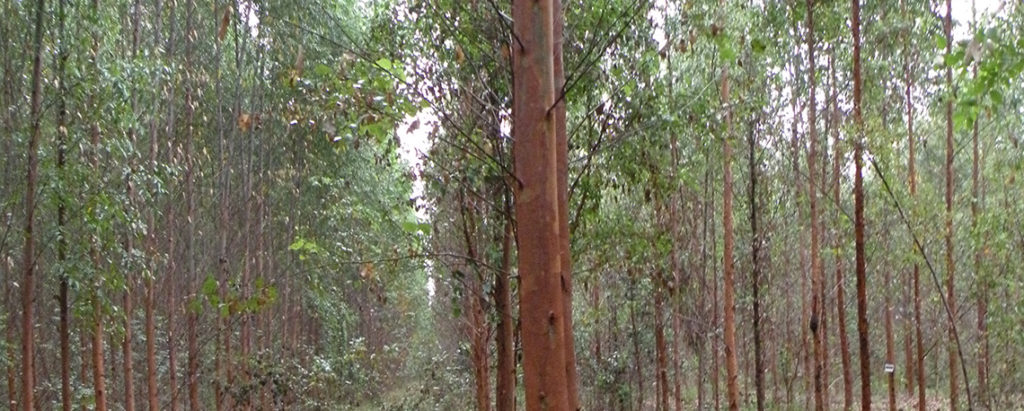
Genetically engineered eucalyptus plantations threaten the entire ecosystem.
By RUDDY TURNSTONE
Originally published by EarthFirstJournal.org
On April 20th 2017, the US Department of Agriculture’s (USDA) Animal and Plant Inspection Agency (APHIS) released their draft Environmental Impact statement (EIS) on ArborGen’s genetically engineered (GE) hybrid eucalyptus.
The draft EIS recommended that the GE eucalyptus, two lines called FTE 427 and FTE 435 and their subsequent progeny, be deregulated, stating that there would be no significant impact to bringing billions of GE, freeze-tolerant eucalyptus seedlings to the so-called southeastern US. Deregulation permits companies and institutions to commercialize their GE products that were once only allowed in field trials, or that have slipped through government regulation loopholes.
Even without being genetically engineered, eucalyptus is the most planted plantation tree in the world. Prized for its fast growth, it is used primarily for the paper and pulp industry. The downside is, eucalyptus is highly flammable, water sucking, and a documented invasive. Because it is grown in tree plantations, it also usually has detrimental impacts to neighboring communities water supplies and ecosystems. There are no studies long-term enough to understand how the genetically engineered trees will impact surrounding trees, plants, bugs and other wild life. Even though it is also genetically engineered for male sterility, the wild almost always finds a way to procreate eventually, not to mention that eucalyptus trees stump sprout after being cut.
On June 4th, the International Union of Forest Research Organizations (IUFRO) will be having their Treebiotech 2017 conference in Concepción, Chile. There they will discuss the state of GE trees and how to get the host country (Chile) to increase it’s number of GE trees. They will meet, but not without organized public opposition. Indigenous Mapuche communities, rural folk and organizations like the Observatorio Latinoamericano de Conflictos Ambientales are coordinating public protests and teach-ins during the IUFRO Treebiotech conference.
GJEP visited Chile in March with an international delegation of the Campaign to STOP GE trees. There we saw clear-cuts of tree plantations reminiscent of the Pacific Northwest in the so-called US, met Mapuche communities who were losing their water table levels due to tree plantations, and met survivors of the devastating fires that occurred in the beginning of 2017. With the hundreds of thousands of acres that burned, many of which were tree plantations or forests, what we saw in Chile was a chilling reminder of what will come if the release of GE eucalyptus is not stopped. Public comment submissions can be made until July 5th.
